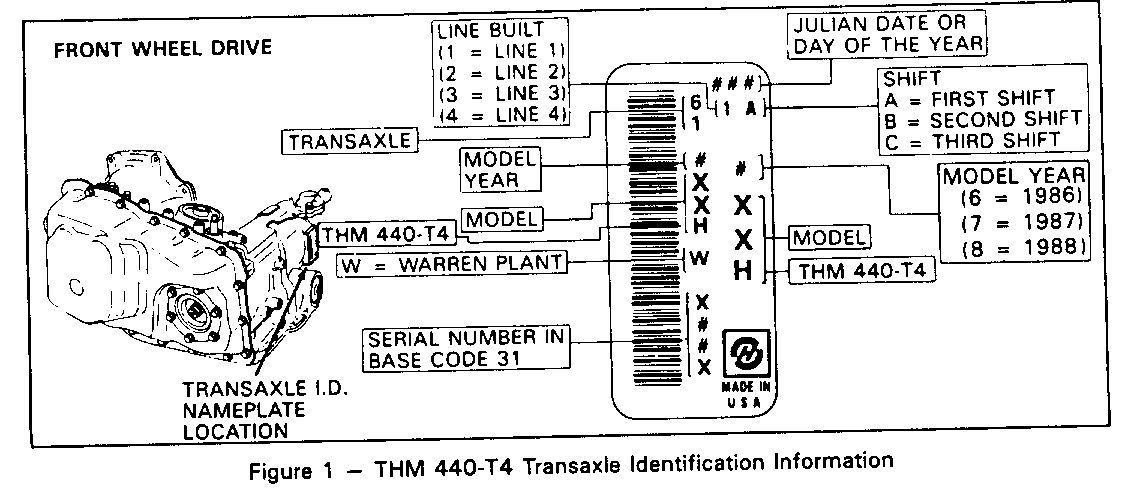HARSH ENGAGE, DOUBLE BUMP OR SHUDDER-PARK/NEUTRAL-REVERSE

MODELS AFFECTED: 1985-1990 DE VILLES AND FLEETWOODS 1986-1990 ELDORADOS AND SEVILLES
This bulletin supersedes T-89-124 which should be discarded.
A new reverse band assembly is available for service that will help decrease harsh engagement, double "bump", or shudder from park or neutral to reverse. The new reverse band assembly has new friction material that will help decrease reverse engagement concerns.
Reverse engagement concerns may be caused by "oxidized" fluid (the fluid may visually appear to be okay), "glazed" (overheated) reverse band assembly friction material, and/or improper surface finish on the drum of the second clutch housing.
IMPORTANT: Harsh reverse engagement could also be caused by a worn or damaged rubber torsional damper unit that is incorporated as part of the right-hand drive axle shaft. Refer to Section 4D of the Service Information Manual.
Check engine idle speed, engine/transaxle mounts, rubber torsional damper unit for the right-hand drive axle shaft and transaxle reverse line pressure following Service Information Manual procedures. If okay, replace the reverse band assembly and second clutch housing drum and bushing assembly with the appropriate parts listed below in Service Parts Information.
Beginning February 7, 1990 (Julian Date 038) all Hydra-Matic 4T60 (THM 440-T4) transaxles were built with the new reverse band assembly.
Service Parts Information:
Year Number Description
1985-1990 8675152 Reverse Band Assembly 1987-1990 8661912 Second Clutch Housing Drum and Bushing Assembly (six plate) 1985-1986 8668958 Second Clutch Housing Drum and Bushing Assembly (five plate) 1987-1988 8668121 Reverse Servo Cushion Spring
For repair procedures refer to the Hydra-Matic 4T60 (THM 440-T4) automatic transaxle unit repair and on-vehicle sections in the appropriate model year Service Information Manual.

General Motors bulletins are intended for use by professional technicians, not a "do-it-yourselfer". They are written to inform those technicians of conditions that may occur on some vehicles, or to provide information that could assist in the proper service of a vehicle. Properly trained technicians have the equipment, tools, safety instructions and know-how to do a job properly and safely. If a condition is described, do not assume that the bulletin applies to your vehicle, or that your vehicle will have that condition. See a General Motors dealer servicing your brand of General Motors vehicle for information on whether your vehicle may benefit from the information.
